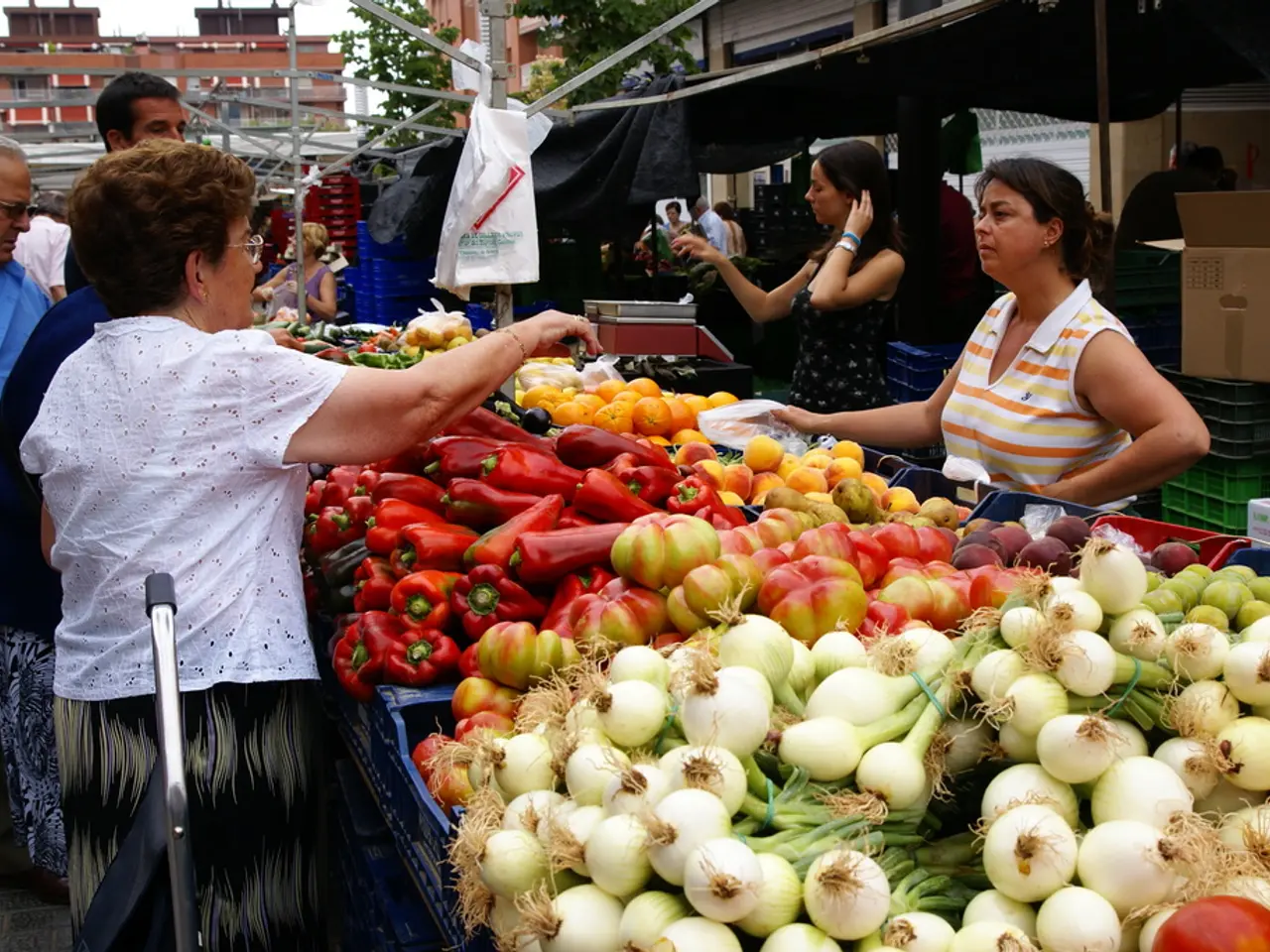Montreal and Saint-Hyacinthe lock horns over agri-food chain dispute
Montreal Allegedly Exercising Control Over Food Industry Through Questionable Tactics
According to Saint-Hyacinthe's City Hall, Montreal's administration is causing an uproar within the entire agri-food industry by its ongoing conflict with the city's Sanimax slaughterhouse. In a letter penned to the Prime Minister, the mayor of Saint-Hyacinthe expresses concern about the impending collapse of the industry due to the protracted dispute between Montreal and the Sanimax slaughterhouse.
What you need to know
- The tussle between Sanimax and the City has been in the midst of mediation with the government for over a month now.
- With increasing pressure from Saint-Hyacinthe, the Plante administration is now facing scrutiny.
- The Quebec government, however, remains optimistic about reaching a resolution.
"The administration of Montreal cannot continue to hold the entire agri-food chain hostage and put the economy of all regions of Quebec at risk," writes André Beauregard, the mayor of Saint-Hyacinthe, in his recent letter to François Legault.
Beauregard's city also houses a plant of the animal carcass recovery company Sanimax. The mayor alleges that the city's regulatory demands are unachievable for Sanimax.
"Despite Sanimax's efforts, which have put forward expert-developed solutions using the best available technology, the City of Montreal refuses to consider these proposed solutions," the mayor reiterates, describing the situation as "critical" for approximately 60,000 jobs in the province.
Quebec began mediation efforts between Montreal and Sanimax in late February, hoping to resolve the impasse. So far, no concrete outcomes have been achieved.
The agreement signed last year between Sanimax, the Quebec government, and the City of Montreal is now in peril. Initially, this agreement called for Sanimax to construct a storage garage and an air purification system by 2025, followed by a water treatment plant by 2027.
Sanimax has since complained that the City has withheld the necessary permits for these facilities' construction. Montreal, on the other hand, cites the lack of required documentation from Sanimax as the reason for permitting delays. In essence, both parties are casting blame.
The welfare of the population must come first
The Metropolitan Community of Montreal (CMM), which brings together 82 municipalities in the region, argues that the populace should be protected first.
"The area in which Sanimax's operations occur is densely populated, warranting the existing regulations applicable to the company. The objective is to protect the citizens of the borough, who have been subjected to irritants emanating from the plant year after year," writes the general director, Massimo Iezzoni, in his letter sent to the Minister of Agriculture, André Lamontagne, mid-April.
Derogations from regulations cannot be accepted under these circumstances. This could set an unacceptable precedent, allowing other companies to demand similar treatment.
Massimo Iezzoni, general director of the CMM
The same sentiments are echoed by Mayor Valérie Plante's office, who advocates for unity. "We are united in our desire to respect the agreement signed by Sanimax, the Quebec government, and the City of Montreal. We are diligently participating in the mediation process currently underway to achieve this goal."
Mayor Beauregard believes that the closure of Sanimax in Montreal would result in severe and immediate consequences for slaughterhouses, as well as for pig and poultry farmers. They would no longer be able to sell their animals, leading to price increases for Quebec consumers.
At Sanimax, they contend that "all agricultural municipalities in Quebec are in the same situation." "We are vigilantly engaging in mediation to discover a comprehensive and long-lasting solution for our Montreal plant," the company asserts.
Lamontagne believes that a resolution is still possible due to the mediator. "Meetings with stakeholders have already taken place. Progress is being made. It is crucial for maintaining the food supply chain for pork and chicken, as well as restaurants and butcher shops, particularly on Montreal Island," his circle maintains.
Hear us out, says UPA
At the Union des producteurs agricoles (UPA), general director Charles-Félix Ross implores the parties to promptly reach an agreement.
"We are extremely concerned about the situation. Rendering is an essential service. The producers and the public will face the repercussions if these parties fail to reach an agreement."
"The by-products from slaughterhouses, that's 25,000 trucks and 500,000 tons of animal by-products per year. If there's no plant to treat these products, we'd have to bury them, which could impact the water table, spread diseases, emit waste, and be a major source of greenhouse gases."
Mr. Ross urges Quebec to quickly deliver a solution by unblocking negotiations in the coming weeks. "The issue needs to be resolved," he insists.
In itself, the animosity between the City and Sanimax is not new. For a decade, the two sides have faced lawsuits before the court to settle disputes regarding nuisances.
- The mayor of Saint-Hyacinthe, André Beauregard, has expressed to François Legault (the Prime Minister) his concern about the potential collapse of the entire agri-food industry, as the dispute between Montreal and the Sanimax slaughterhouse continues to escalate.
- The mayor of Saint-Hyacinthe also points out that the regulatory demands imposed by the City of Montreal are too unrealistic for Sanimax to implement, which could put approximately 60,000 jobs in Quebec at risk.
- The mayor of Montreal, Valérie Plante, maintains their stance that the welfare of the population should come first, citing the closely populated area around Sanimax's operations as a reason for existing regulations.
- In response to the ongoing dispute, the Union des producteurs agricoles (UPA) has urged all parties to promptly find a resolution, emphasizing that rendering is an essential service whose disruption could result in repercussions for both producers and the public.






